1. Which teacher is known as "The wise man of the times"?
- Chu Van An0%
- Nguyen Binh Khiem0%
- Le Quy Don0%
Scholar Le Quy Don (1726-1784), from Dien Ha village, Son Nam town (now Le Quy Don commune, Hung Yen province).
He is the eldest son of Doctor Le Phu Thu (later changed to Le Trong Thu) - who once held the position of Minister of Justice.
Since childhood, Le Quy Don was famous for his love of learning and extraordinary memory. At the age of 2, he could read, and at the age of 5, he had memorized many poems in the Book of Songs. By the age of 10, he was studying history and memorized 80-90 chapters a day, while also studying the Book of Changes. At the age of 14, he had read all of the Five Classics, Four Books, Historical Stories, and Philosophers and could compose 10 poems without a draft.
That same year, he followed his father to Thang Long to study with Dr. Le Huu Kieu. Thanks to his outstanding talent, he passed the Giai Nguyen exam at the age of 17, then passed the Hoi Nguyen exam and Bang Nhan exam at the age of 27 (the exam did not select Trang Nguyen).
After passing the exam, Le Quy Don held many important positions under the Le - Trinh dynasty, famous for his integrity, uprightness and erudition. He was sent to investigate people's lives and corruption in many localities such as Son Nam, Lang Son .
During his diplomatic trip to China (1760-1762), he met many intellectuals, discussed academics and accessed more books, including Western works on geography, language and hydrology.
Thanks to his wide experience and deep knowledge, Le Quy Don was honored by his contemporaries as "the wise man of the era".
2. Which teacher is honored as "The teacher of all generations" - the standard teacher for all generations?
- Chu Van An0%
- Nguyen Dinh Chieu0%
- Nguyen Binh Khiem0%
Chu Van An (1292-1370) was born in Quang village, Thanh Tri, Hanoi .
From a young age, he was known for his studiousness, intelligence, and profound knowledge. He passed the Imperial examinations but did not become an official. He opened the Huynh Cung school, teaching students from kindergarten to university, while also cultivating morality, character, and responsibility to the country.
With his talent and virtue, Chu Van An was invited to be the Vice Rector of the Imperial Academy, directly tutoring the Crown Prince and compiling Confucian textbooks. When the court was in turmoil, he submitted the "Seven-Execution Memorial" requesting punishment of corrupt officials, but it was not approved. He then returned to live in seclusion in Chi Linh, Hai Duong, continuing to teach, treat patients, and compose literature and poetry.
Chu Van An is a shining example of talent, morality and dedication to the cause of education. He was posthumously awarded the title Van Trinh Cong, posthumous name Khanh Tiet by King Tran Nghe Tong and is worshiped at the Temple of Literature and many other relics.
During his lifetime, he was respected by the people as "Van the su bieu", meaning the eternal exemplary teacher.
3. Which teacher was respected by his students as "Tuyet Giang master"?
- Nguyen Binh Khiem0%
- Luong The Vinh0%
- Vo Truong Toan0%
Nguyen Binh Khiem (1491-1585), birth name Nguyen Van Dat, alias Bach Van Am layman, born in Trung Am village, Vinh Lai district, Hai Duong town (now Hai Phong).
Born into a studious family, he soon showed his intelligence and was directly taught by teacher Luong Dac Bang.
In the context of the decline of the Le Dynasty, it was not until 1535 that he took the exams and passed all three exams of Huong - Hoi - Dinh, becoming the first-ranking scholar. He held many important positions, was given the title of Trinh Tuyen Hau and then Trinh Quoc Cong, and was respectfully called Trang Trinh by the people.
As a profound scholar, well-versed in the Book of Changes, he repeatedly gave strategic advice to Lord Trinh, King Mac and Nguyen Hoang, contributing to orienting the contemporary political situation.
Early on, he opened a school by the Tuyet Giang River; after retiring from office, he continued to teach at Bach Van Am, attracting many students and was honored as "Tuyet Giang Phu Tu", a symbol of wisdom and virtue.
4. Which teacher is considered the "Father of Southern Education"?
- Nguyen Dinh Chieu0%
- Vo Truong Toan0%
- Phan Boi Chau0%
Vo Truong Toan (?-1792), alias Sung Duc, from Binh Duong district, Tan Binh prefecture, Gia Dinh province (now Ho Chi Minh City).
He was a talented and virtuous Confucian scholar and teacher. During the Tay Son - Nguyen Anh war, he did not take the mandarin exam but chose to live in seclusion and opened a school in Hoa Hung.
Vo Truong Toan's teaching method is very scientific, based on the method of "Righteousness to educate" and emphasizes "Tri ton duong khi" - meaning learning to do righteous deeds and contribute to the country. He believes that humanity is an eternal value and needs to be preserved in a changing society.
He required his students to thoroughly understand the content of the book, not to memorize every word. Many of his students later passed the exams and became famous, such as Trinh Hoai Duc, Ngo Nhan Tinh, Le Quang Dinh (called "Gia Dinh Tam Gia Thi")...
Vo Truong Toan was known as the "Father of Southern Education". He died on July 27, 1792. Lord Nguyen bestowed the posthumous title "Gia Dinh scholar Sung Duc Vo Tien Sinh".
5. "Carrying many boats without sinking" is a famous poem by which teacher?
- Nguyen Thiep0%
- Nguyen Dinh Chieu0%
- Cao Ba Quat0%
Nguyen Dinh Chieu was born on July 1, 1822 in Tan Thoi village, Gia Dinh (now Ho Chi Minh City), into a Confucian family. In 1833, he went to Hue to study and passed the Bachelor's degree in 1843.
In 1848, on his way home to mourn his mother, he became seriously ill and went blind. However, he continued to teach, practice medicine, help the poor, and live a simple life with his wife in Can Giuoc.
Nguyen Dinh Chieu used literature and poetry to educate and arouse patriotism against the French. The poem Luc Van Tien (1851) praised loyalty; the works Duong Tu - Ha Mau, Ngu Tieu Van Dap Nho Y Dien Ca and Van Te Nghia Si Can Giuoc deeply expressed patriotism, love for the people and resistance spirit.
His writings reflected the period of national invasion, condemned colonial crimes and the weakness of the royal court. Despite his blindness, he continued to teach, prescribe medicine and compose until the end of his life. He died on July 3, 1888 in Ba Tri, Ben Tre, and was buried in his wife's hometown.
The verse "Carrying so many religions, the boat will not sink" is in his poem "Than dao".
Source: https://vietnamnet.vn/nguoi-thay-nao-cua-viet-nam-duoc-menh-danh-la-tui-khon-cua-thoi-dai-2463682.html







![[Photo] General Secretary To Lam and National Assembly Chairman Tran Thanh Man attend the 80th Anniversary of the Traditional Day of the Vietnamese Inspection Sector](https://vphoto.vietnam.vn/thumb/1200x675/vietnam/resource/IMAGE/2025/11/17/1763356362984_a2-bnd-7940-3561-jpg.webp)
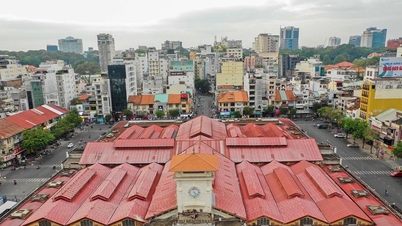
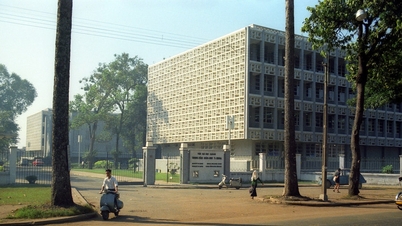



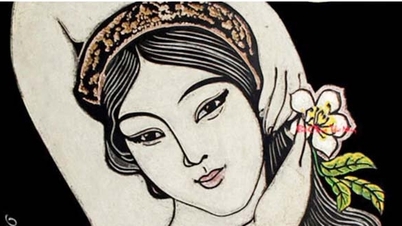
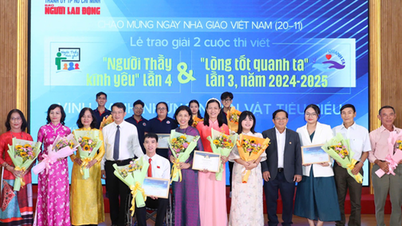





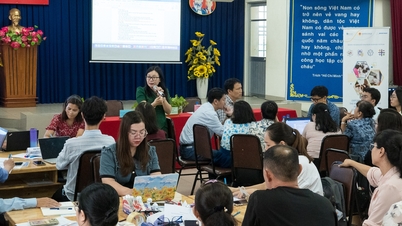


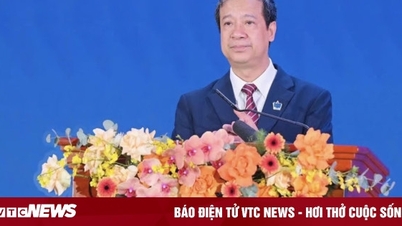







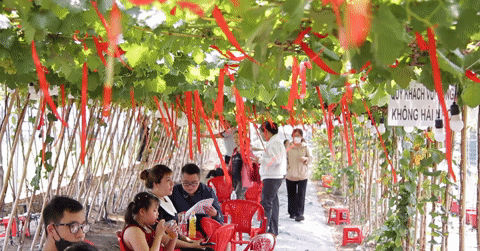




























































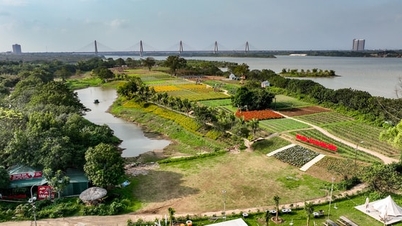
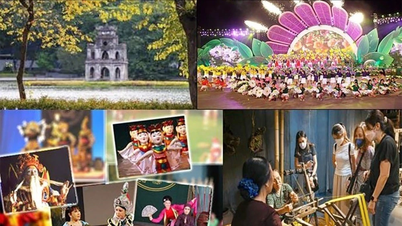















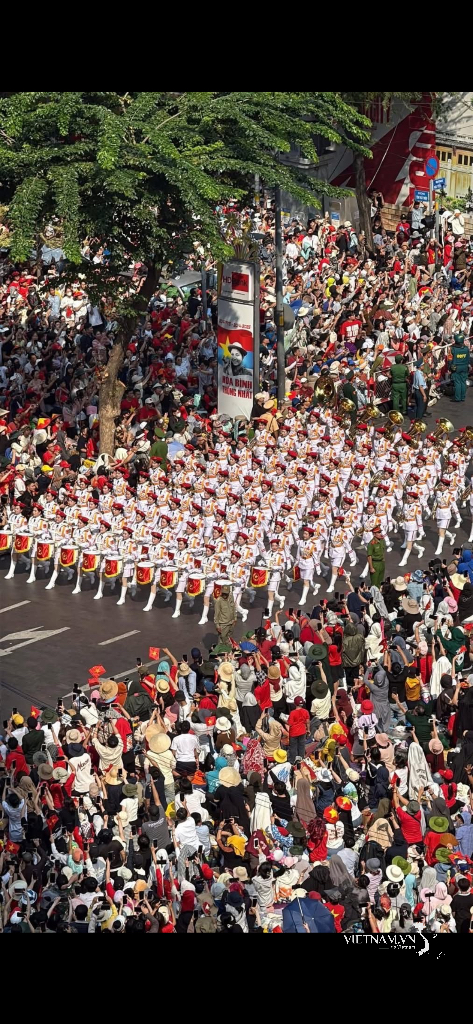

Comment (0)